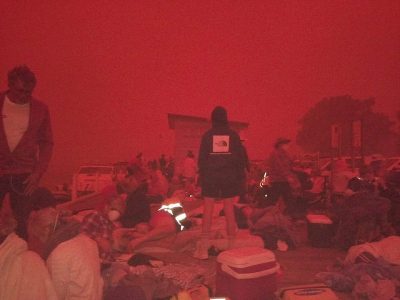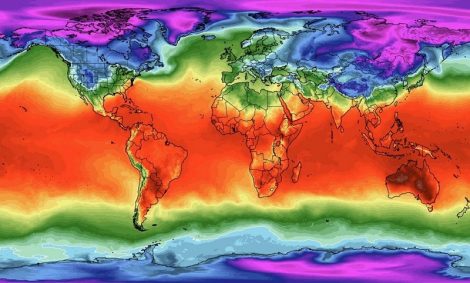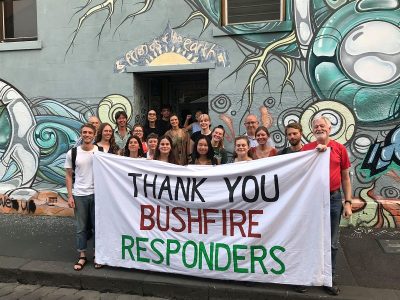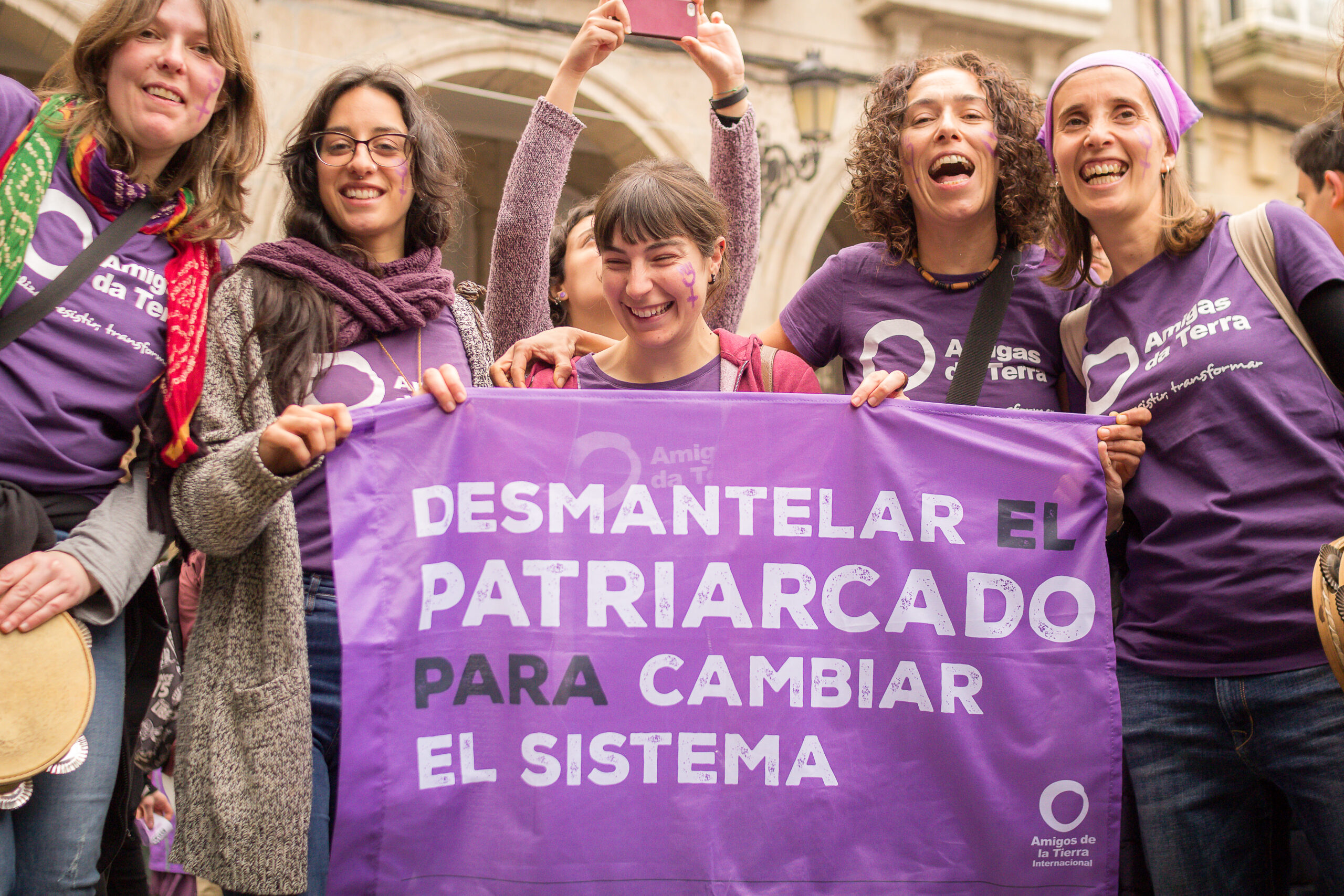Australia: this is climate change
“The best way to help is to get involved: transform our systems to put communities and the environment first.” —FoE Australia

“Australia is experiencing an unprecedented fire crisis. 10 million hectares have been burned already. Nearly 2000 homes have been destroyed and many lives lost.
The fires are so immense they have created their own weather systems, sparking more fires by generating their own dry electrical storms. Firefighters have never seen anything like it.
Scientists are now saying many billions of animals are likely to have perished in the fires. Despite huge efforts being made to save thousands of burned and orphaned kangaroos, koalas and other animals, the impact on our biodiversity is likely to be devastating.
And it’s only the start of our bushfire season. After our warmest year on record in Australia, we only expect conditions to worsen as we move into February and March. […] This is climate change.”
This is the beginning of a letter published this week by environmental organization Friends of the Earth Australia, of whom several members and volunteers have been working as ‘firefighters’, including their Coordinator Cam Walker.
“This really has been a catastrophe. It has impacted literally millions of people around the country, with public health impacts. It´s having enormous direct economic impacts on affected communities, whole regions have been closed that would be normally hosting many thousands of visitors, and there has been a terrible loss in wildlife and landscapes”, said Walker to Real World Radio.
Volunteers and members are involved in various wildlife protection initiatives.

Impacts
“The economic and environmental impacts have been enormous. So far more than 8 million hectares of land have been burned, 25 people are dead, thousands of houses have been burned to the ground and some entire small towns have been destroyed. The economic impact is estimated to be 4 billion Australian dollars. There´s at least 1 billion native animals killed and already the impacts of the fires are driving a food crisis in Australia,” stated Walker.
Many animals that survived the fires now face possible starvation. In response, groups of volunteers are distributing suitable food in burnt down areas, hoping to give the animals a chance of surviving until rains generate sufficient regrowth.
Sara Shaw, Coordinator of the Climate Justice and Energy work at Friends of the Earth International, stressed: “People are incredibly angry. Of course, now there is a focus on fighting the fires and the aftermath, but there is also people power building to bring transformation from the ashes of this disaster. We need system change, the current model is driving continued demand for fossil fuels.”
The reaction from politicians continues to be denial of the climate crisis we are experiencing. The recent climate summit in Madrid, COP25, showed frustratingly little progress. Now that climate impacts, like these bushfires, have touched a developed country, will it spur governments to take action to uphold their responsibility for curbing climate change and achieving climate justice?
“The government refuses to curb emissions even when faced with catastrophic impacts for people and wildlife and financial losses of up to 4.5 billion Australian dollars. The government remains in the pockets of the fossil fuel industry, propping up coal extraction and privilege for the few, at great cost to the many. So in effect we are seeing governments abandoning their own people,” added Shaw.

What can we do to help?
“The best way that everyone can help is to get involved in local campaigns and build our movements to stop climate change and transform our systems to put communities and the environment first”, said Friends of the Earth Australia.
The organization is holding fundraising events for charities doing emergency work on the ground. They are also organizing actions, vigils and protests to draw attention to the disaster and demand support for fire impacted communities and wildlife, as well as action on climate change.
Their key demands are to properly fund and support fire fighters, to support recovery of nature and people, to act on climate change, to stop new coal mines and to make a just transition to 100% people powered renewable energy.
“This is what the scientists predicted, this is climate change, we need system change to save our planet”, stressed Sam Cossar-Gilbert, Coordinator for work on Economic Justice—Resisting Neoliberalism at Friends of the Earth International.
Walker concluded that “what is happening in Australia right now is a warning to the world, a call to action, and we ask you to keep fighting with us for climate justice.”
Meanwhile, floods are once again hitting the planet. Last year we saw dramatic floods in Mozambique, Malawi and Zimbabwe following the Idai cyclone, and also hurricanes and floods in Cuba. This time, Indonesia is the country affected. Will these episodes become more and more common?
“As well as the wildfires happening in Australia, we are also seeing other impacts like floods and cyclones. At the same time as Australia burns, Jakarta, in Indonesia, was hit by unprecedented flooding in the past few weeks, at least 67 people have died because of the flash floods and the landslides and thousands of homes have been swept away.
This is what has been predicted by climate scientists for decades, the warnings have been there. (…) We urgently need finance from developed countries for developing countries for adaptation to climate change and the loss and damage that´s now unavoidable,” concluded Shaw.

For more information about Friends of the Earth Australia’s climate campaign visit: www.actonclimate.org.au/our_campaign




